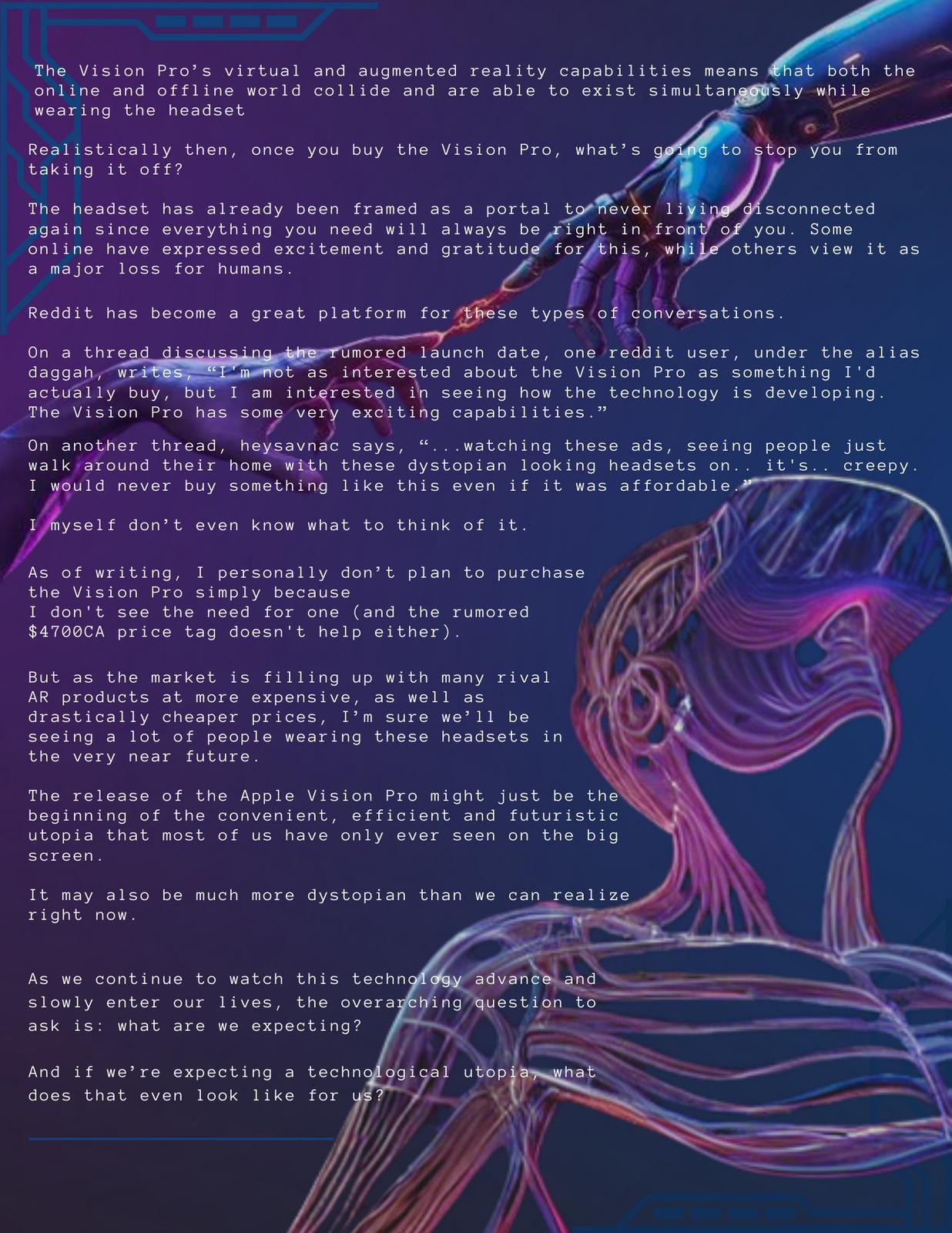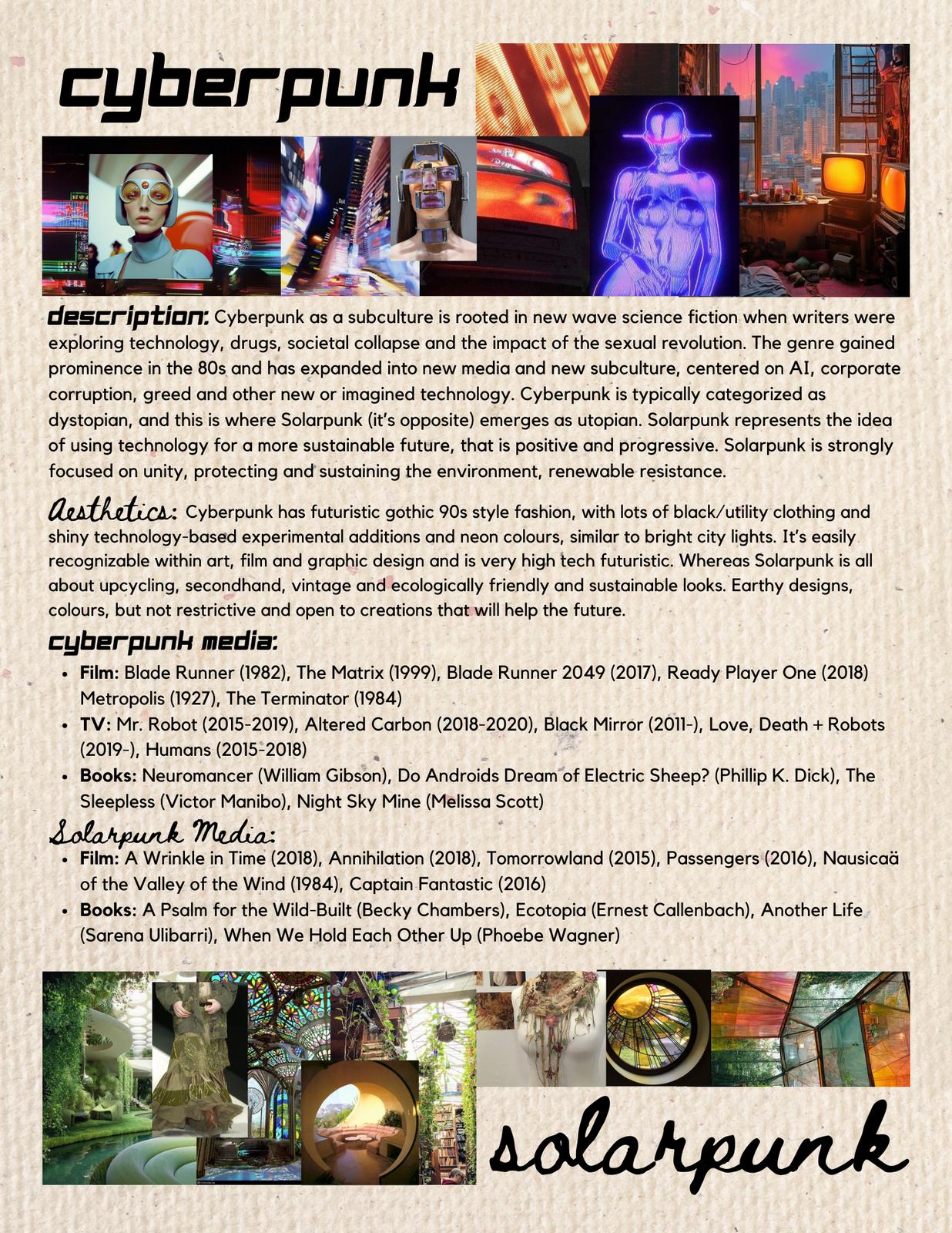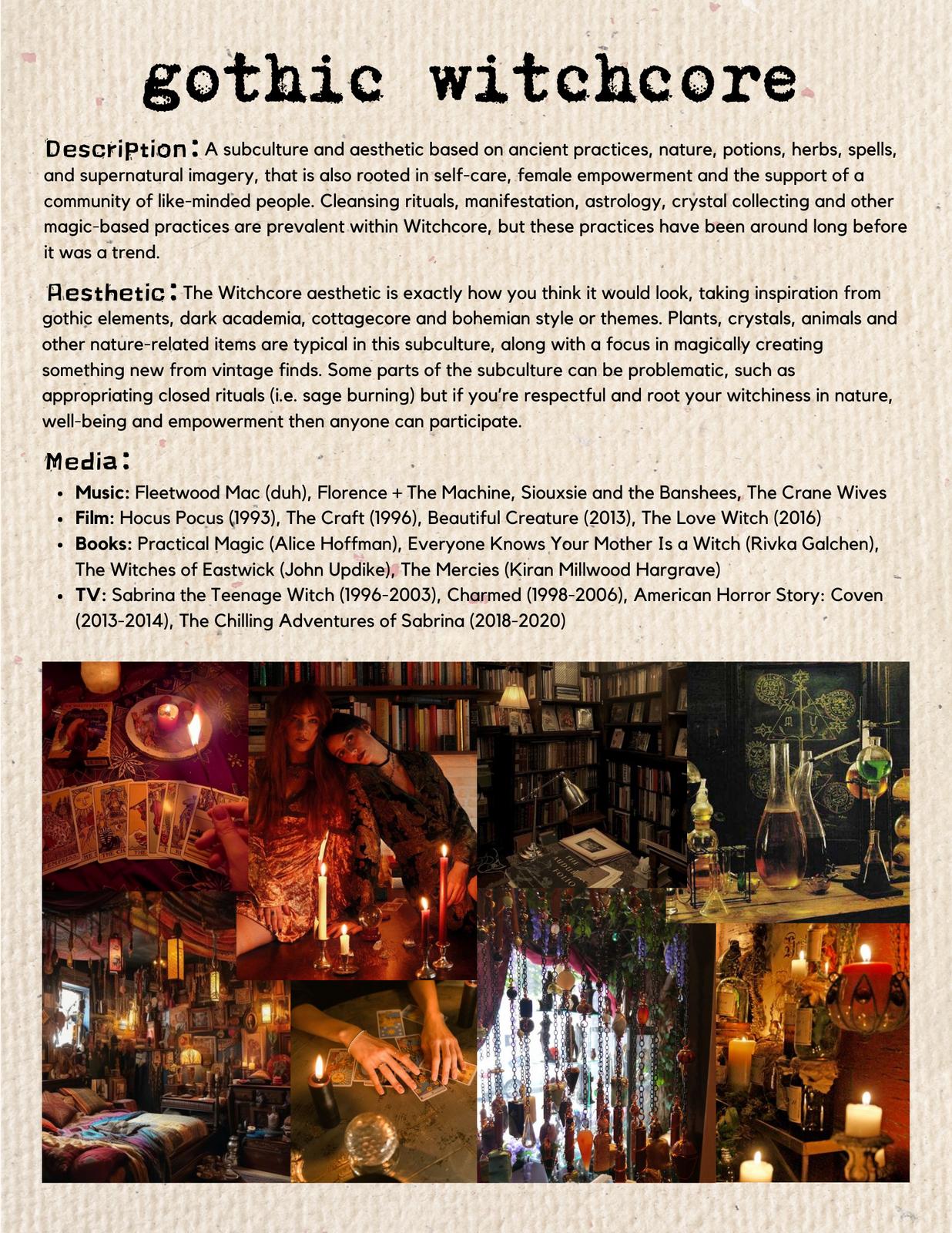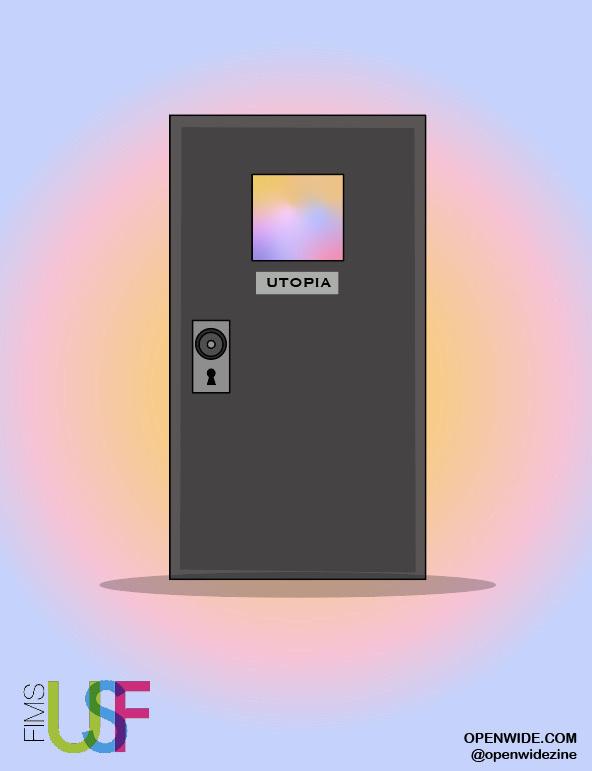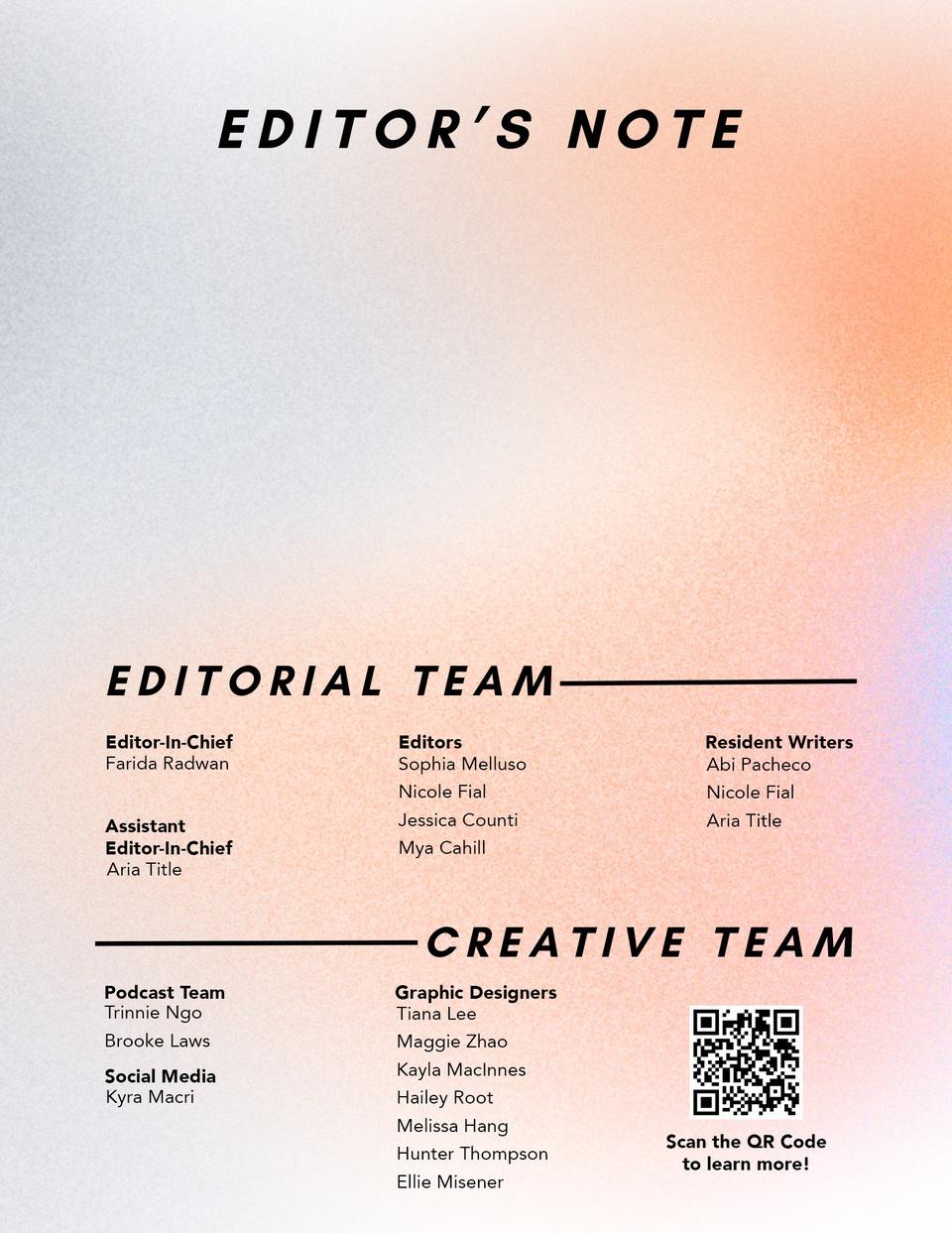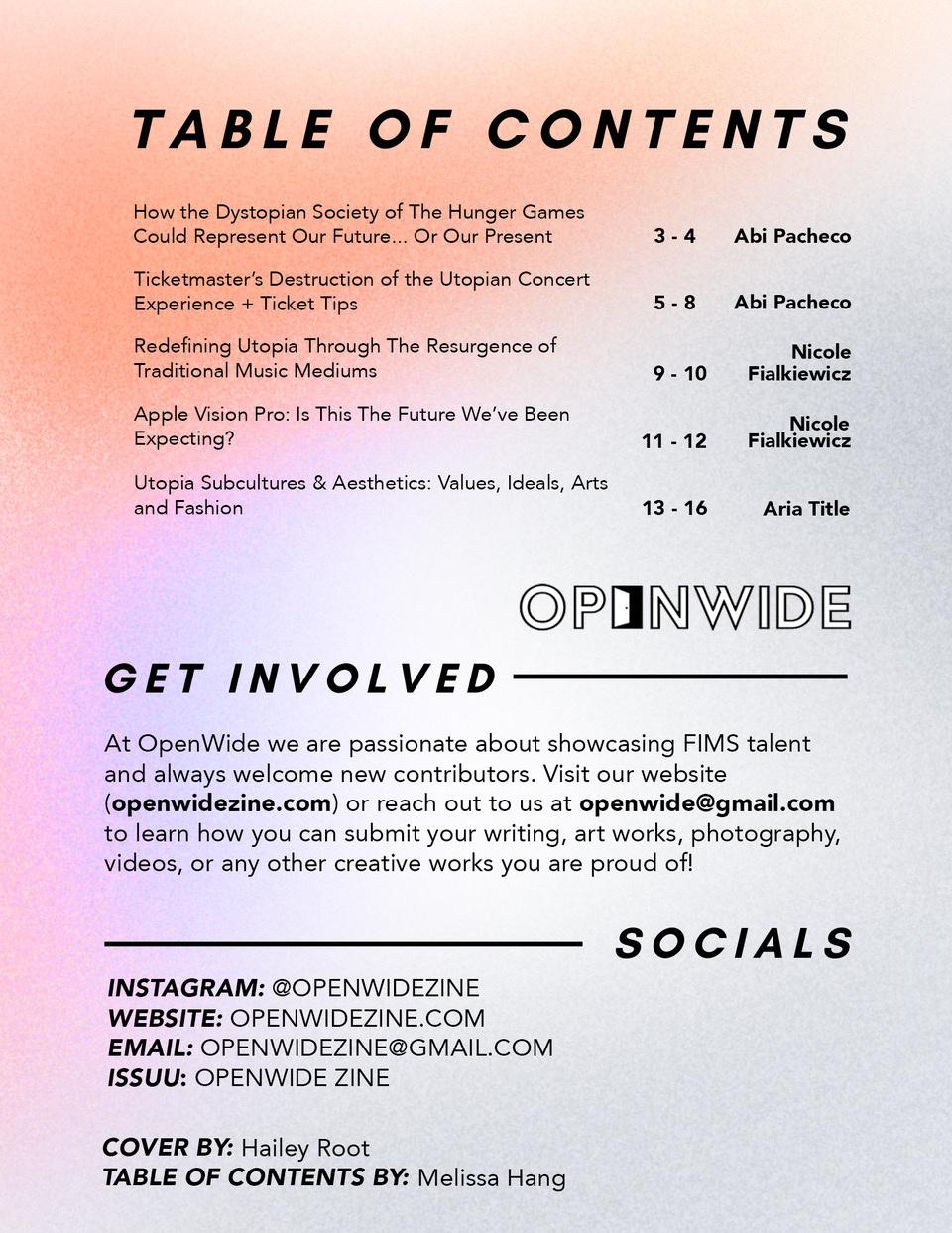How the Dystopian Society of The Hunger Games Could Represent Our Future… Or Our Present
You may hear the word “dystopia” get thrown around when people anxiously describe what our future societies might look like. But what really is a dystopia? If we look at the etymology of “dystopia,” it comes from the prefix “dys-”, meaning bad or abnormal, combined with “utopia.” So, really, a dystopia is a bad utopia, or a utopia gone wrong. Dystopias form when a seemingly perfect futuristic society with utopian ideals becomes ultimately altered by apocalyptic events. Dystopian societies are often rooted in inequality, segregation, and weaponized technology, which is facilitated by a corrupt power. So, where have we seen societies that are dystopian in nature? Usually, they are hypothesized in fictional books and films The Hunger Games trilogy by Suzanne Collins is a modern favourite, particularly for younger generations The book series was also adapted into beloved blockbuster films. Though fictional, the society represents a somewhat realistic idea of what could happen if utopian ideals are taken too far.
The Hunger Games trilogy is written from the perspective of Katniss Everdeen, a teenager from the nation’s poorest district. Panem is a postapocalyptic nation resembling North America. It is made up of 13 districts and one dominating city, fittingly called the Capitol, which is led by President Snow The Hunger Games are used as a method of punishment against the districts for rebelling against the Capitol’s control of society by inciting a war approximately 75 years prior From each district, children are either randomly selected or they can volunteer to participate in place of another tribute. They must fight to the death in order to survive as the sole winner.
In this society, the Capitol serves as the central utopia of Panem. The city is written in the trilogy as one of urban perfection, where living conditions are favourable and usually lavish for its wealthiest residents. Meanwhile, the outlying districts are rural and perceived as undesirable by Capitol residents. The welfare of each district is dependent on the value of the goods that they specialize in producing. The districts are forcibly engaged in an economic system where each provides a particular good or utility to the Capitol, such as coal, lumber, fishing, or electricity. The Capitol then provides them with “protection” through local Peacekeepers in exchange for their labour. Peacekeepers enforce laws and subdue signs of civil unrest in order to prevent another rebellion.

Clearly, this system is corrupt and only exists to fuel the Capitol as a utopian city District residents throughout the novels mutually recognize the system’s unfair qualities and seem not to perceive the districts as part of the utopia, but merely as servants of it. Additionally, the districts are under constant surveillance, their civil rights are limited, and the horrors of the Hunger Games are tools used to silence them.
Now, how did this system come to be? Despite what some may think, President Snow was not responsible for the Hunger Games or the district system. He only sought to further its agenda. The more recently released prequel, The Ballad of Songbirds and Snakes, focuses on Coriolanus Snow and his formative years in schooling as he becomes a mentor in the 10th Hunger Games. Snow learns much from the Head Gamemaker at the time, Dr Gaul Arguably, the most vital lesson he learns from her is that humans are inherently violent, and that they reveal who they are when civilization and their background are stripped away
WrittenbyAbiPacheco DesignedbyMaggieZhao
From this lesson, Snow understans the “why” of the Hunger Games, other than it being a form of punishment. Snow has aways been someone who requires order to function properly, so Dr Gaul’s lesson reassures him that chaos can be controlled by maintaining the Capitol’s utopianism and continuing the Hunger Games. When young Snow is forced into the role of a Peacekeeper in District 12, he realizes firsthand that because the districts lack the perfectionism of the Capitol, they are more unruly and should be further controlled. The “chaos” of the districts makes him unsettled as someone who grew up in the utopian bubble of the Capitol. Although the novel does not show Snow’s journey to presidency, these ideas from his time as a mentor are implied to be what form his extensive totalitarian leadership style.
If the districts rebel because they grow tired of the inequality and gruelling labour, the Capitol’s corrupt utopia – a k a dystopia – risks falling to the chaotic, freeing rebellion of the districts. This is what occurs during the first rebellion and it becomes Snow’s task to preserve order, which he is successful with for decades. In the trilogy, Katniss sparks the second rebellion alongside Peeta Mellark by wanting to die in the 74th Hunger Games, rather than hurt Peeta to win. Therefore, Katniss Everdeen – despite her lack of awareness at the time –becomes the first solid crack in the foundation of the utopian Capitol.
It is clear that although proposed utopian societies possess promise and an incomparable perfection, some element of dystopia must coincide with it for its existence to work. In the case of The Hunger Games, the Capitol is a utopian society that is provided for and remains in a protective bubble In order for it to exist, it requires the districts’ labour and suffering, which makes it a corrupted utopia. Scarily enough, it seems that the dystopian genre wouldn’t exist without real concern about perfectionism gone wrong. The Games may not exist in our future, but who’s to say other aspects of Panem won’t? With capitalism running rampant in our economy, there may come a time when people no longer want to endure upcharges for privately owned essential goods and desire a liveable wage instead of continuing compliance Small acts of “rebellion” are being seen with the number of unions going on strike since the pandemic. The price to pay for large rebellions against social and economic structures is usually financially hefty but has the potential to be brutal, as displayed in The Hunger Games
after apocalyptic events. The origins of Panem itself are unknown to readers, nor are depicted in the films, but brief mentions and fan theories of climate disasters and “world conflict” seem to take the credit If there is indeed fallout from catastrophic climate events, will that lead to the rise of a utopian society, like the Capitol, to restore order through flawlessness? Under the influence of capitalism, it’s likely that wealthier classes could buy their way into a lavish place like the Capitol, where safety and rights are not threatened, leaving behind those who aren’t as fortunate. If you ’ re thinking that this is already happening in the present, you ’ re not wrong… and it’s concerning

When thinking about technology, there are even more parallels between our world and Panem. AI is a hot topic in the media as it is both controversial and rapidly seeping into daily life There are obvious benefits, especially for the search for information and online interfaces. The idea of rebelling against AI’s implementation in products, services, and jobs coincides with the potential for the technology to rebel against us The metaverse is also something to keep an eye on as a potential virtual world replacement for real life. Both AI and the metaverse are ironically the perfect technologies to facilitate a utopia with their seemingly limitless possibilities Could AI and the metaverse be used to subdue chaos through virtual standardization? It certainly looks like it could.
Surveillance through the Internet is normalized in our society, but non-existent in Panem with their traditional forms of surveillance We are at constant risk of being monitored, where it is easy for law enforcement to trace crimes and for corporations to track online activities. Despite this, we know that we are being observed through technology and hardly do anything to protect our privacy Privacy is a loose concept in our world and Panem’s, because as long as the districts face the brunt of cameras and Peacekeepers, their privacy belongs to the Capitol. Who does our privacy belong to? That’s up to you to decide, because there is no correct answer

With climate change becoming a pressing concern all over the world, it rings eerily similar bells to how dystopian societies are formed
Our present and future may seem grim as dystopia gets closer to reality, but Katniss Everdeen has taught readers and watchers of the series that it only takes one small act against the norm to ignite a rebellion. If you are tired of being tracked or just tired of capitalism itself, maybe try Incognito mode on your browser for a bit of privacy from cookies, or support a small business. Because remember, small things like berries can add up to larger things later on And as Katniss says, “There are much worse games to play”.


consider going to a show. As an avid concert goer, I had saved up during the pandemic for the prospect of creating an epic concert lineup for myself as soon as restrictions were lifted and tours went ne hu postCon ns are per unded by t terest as sing son nly a te who –i nly pos That’s he he

Written by Abi Pacheco
If you can remember a time when nosebleed seats for arena shows were less than $50 and having a floor seat didn’t cost the equivalent of Apple’s latest iPhone model, then you ’ re not alone. Of course, inflation is partially to blame, but Ticketmaster is not excluded from this narrative. People have been concerned about Ticketmaster since their monopolistic merger with Live Nation in 2010. What was once a much more affordable utopian space to tap into has now turned into something of luxury, inclusive only to those who are lucky enough to score tickets and brave the prices.
Ticketmaster’s dynamic pricing is mostly at fault for this, meaning prices rise and fall as demand for the show changes. This system is mostly bogus, especially postpandemic as the demand for concerts has reached new heights. Artists supposedly have the option to opt-out of this feature, which was originally implemented to prevent scalpers from reselling tickets on alternate sites and bring in better profits for artists Despite this many artists have

The problems don’t end with ticket prices. Exclusivity continues with the extensive amount of presales that now come before the general onsale. There is almost always an AMEX presale or another credit card company giving ys before the sale to the general tion the presales for venue seasonsven members of ight to determine ble for these preticipate in the act at all with the Fan presale. This facilitated by nce again, try to and get tickets to ot bots).

t adjusted to the andemic concert g into a literal an a verification the demand for your chances are elected. To put it was reported that million people e Verified Fan n Eras Tour dates he population of over 38 million
Fans have suggested that Ticketmaster should change the Verified Fan system to become truly supportive of fans by determining who should receive a presale code based on Spotify listening stats, social media support of the artist, and the like. The idea is certainly nice, but why would a profit-driven monopoly ever agree to that? Scalpers could also still rig the systems by leaving their Spotify streaming while they sleep to boost their “fan activity”. If you sign up, all you can do is wait and hope that you get lucky, because there have been times when there wasn’t a guarantee of a general onsale later on. Again, with the US Eras Tour dates, Ticketmaster oversold the number of tickets in the pre-sales, which isn’t supposed to happen due to the usual division of seats between all sales. It left fans (including myself) speechless and without another chance to see Taylor. Even if there is a general onsale, the entire venue is not up for grabs as pre-sales have taken away at least half of the seats available already.
Ticket-buying used to be a fundamental part of the concert experience, but now it has become detached from the end experience – the storm before the calm. Prepandemic, the process would generally be only mildly stressful, but there would hardly be any hours-long queues or the worry that you wouldn’t get a ticket. Today, both of those things are expected, along with the high probability that the website will crash or kick you to the back of the line for unexplainable reasons. People now beg to get a seat anywhere in the venue, whether it is entirely behind the stage or up hundreds of feet up in the last row of a stadium.
The concert experience is now one that’s associated with mass jealousy, tears, outrage, and even friends selling tickets behind the backs of others. There is even guilt among people who do manage to get tickets to shows as they think of their family, friends, and other devastated fans who were not so lucky. So, is the utopian atmosphere of concerts gone? The artist’s performance may still be perfect, but the conditions surrounding the experience are no longer seamless. Concerts used to be much more open and inviting, but Ticketmaster has made access to the space a gamble with their pricing and flakey technical systems. The space has become restricted, similar to the utopian cities seen in movies that are designated for the elite while the rest of society is excluded. In this case, the “utopian” concert experience now only consists of luck and inflated prices.
But there’s nothing a little ticket education can’t help with. Learning how to “master” Ticketmaster is something I’ve trained myself to do over the past few years. I’ve been (quite literally) lucky enough to survive plenty of Verified Fan presales and have been deemed the designated ticket buyer among my friends. Here are some of my top tips that help make the concert experience a little more utopian:




To increase your chances of being randomly selected as a Verified Fan, you can get friends and family to sign up through their accounts too. This method is much less complicated than having multiple accounts of your own to manage.
If you do receive a code, make a note on your device. Copy and paste the code there and provide a link to sale. Scoping out which sections you ’ re interested in looking for seats in is useful to do the night before, so write that down too.
Make note of your budget and try to scope out prices on social media early by searching artist/tour related hashtags.
If you do not receive a code, look for other sales that may




or
le il re to n he ne
I



